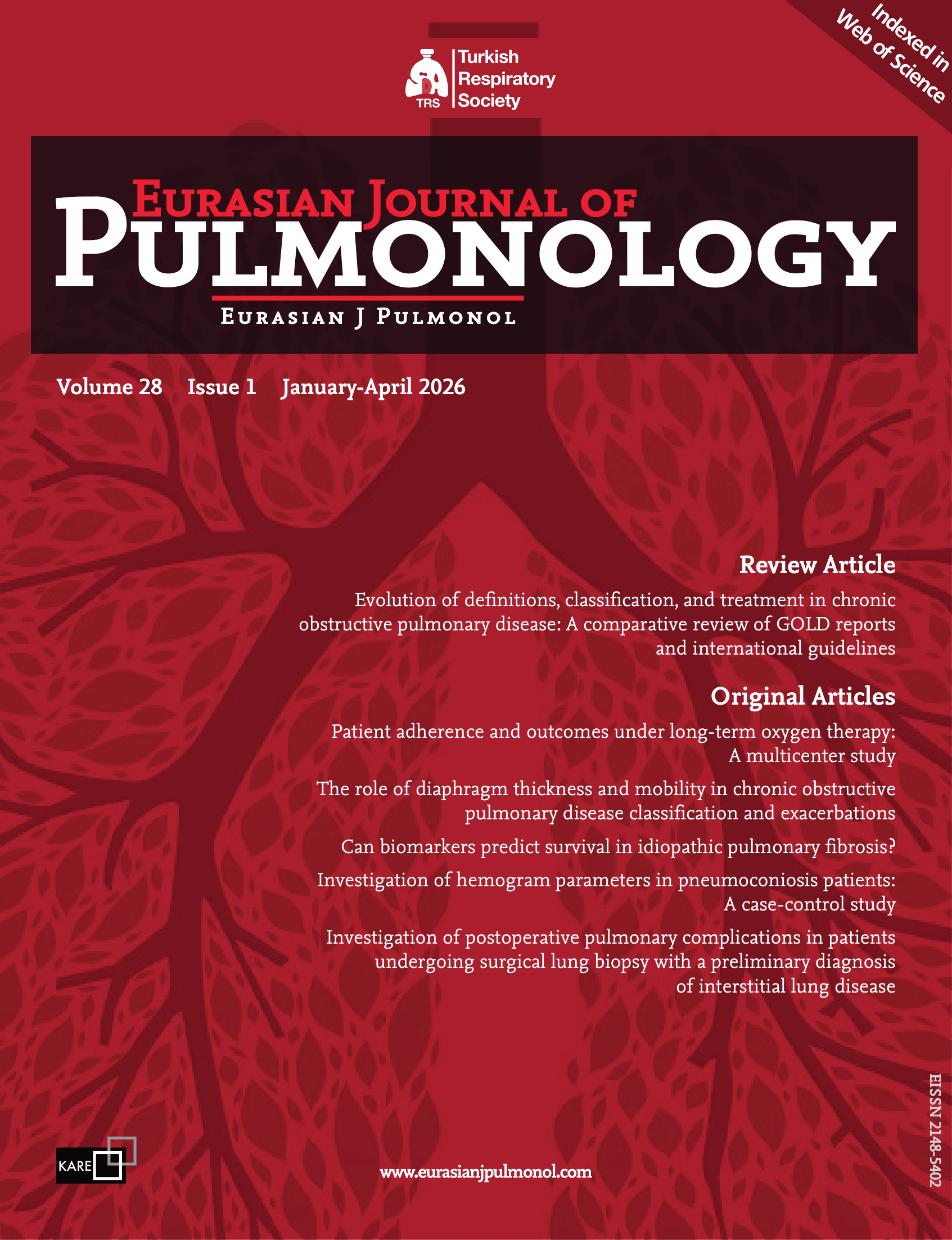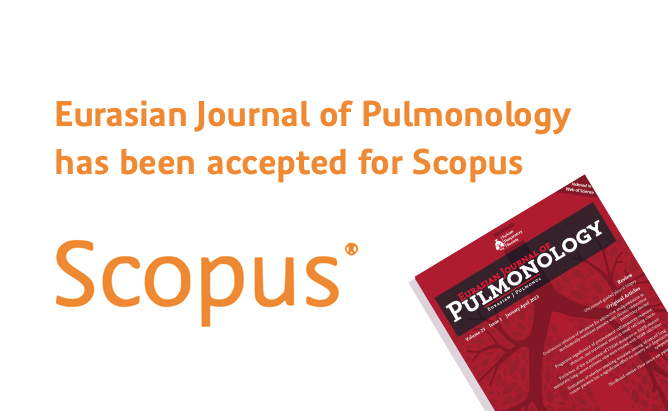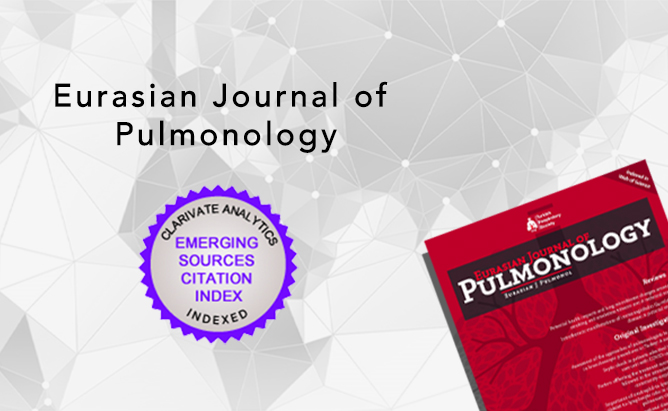2Department of Pulmonology, University of Health Sciences, Van Training and Research Hospital, Van, Türkiye
3Department of Pulmonology, University of Health Sciences, Antalya Training and Research Hospital, Antalya, Türkiye
4Department of Pulmonology, University of Health Sciences Süreyyapaşa Chest Diseases and Thoracic Surgery Training and Research Hospital, İstanbul, Türkiye
5Department of Pulmonology, Aydın Adnan Menderes University, Faculty of Medicine, Aydın, Türkiye
6Department of Pulmonology, Dr.Ali Menekşe Chest Diseases Hospital, Giresun, Türkiye
7Department of Pulmonology, University of Health Sciences Dr. Ersin Arslan Training and Research Hospital, Gaziantep, Türkiye
8Department of Pulmonology, Sakarya University Faculty of Medicine, Sakarya, Türkiye
9Department of Pulmonology, University of Health Sciences Dr. Suat Seren Chest Diseases and Chest Surgery Training and Research Hospital, İzmir, Türkiye
10Department of Pulmonology, Hatay Mustafa Kemal University Faculty of Medicine, Hatay, Turkiye
Abstract
BACKGROUND AND AIM: Long-term oxygen therapy (LTOT) improves survival and outcomes in chronic respiratory failure. This multicenter study assesses the factors affecting adherence in patients undergoing long-term oxygen therapy and evaluates its impact on the frequency of hospital visits.
METHODS: Clinical and demographic data of patients receiving LTOT who were admitted to the study centers between January 1 and June 30, 2024, were recorded. Patients who adhered to LTOT for ≥15 hours per day, including both daytime and nighttime use, were classified as fully adherent. Data from adherent patients were compared with those of non-adherent patients. Factors affecting LTOT adherence were determined using logistic regression analysis.
RESULTS: Among the 374 patients who met the inclusion criteria, 40.6% were classified as adherent to LTOT. Emergency room visits (median: 3/year) and hospital admissions (median: 1/year) were more frequent among LTOT-adherent patients over the past year. Regression analysis identified a body mass index (BMI) <25 kg/m2 and type 2 respiratory failure as independent predictors of LTOT adherence. Among patients with type 2 respiratory failure, those with a BMI <25 kg/m2 were found to be more likely to adhere to LTOT, with a specificity of 74.1% and a sensitivity of 44.9%. A reduction in the frequency of emergency room visits was observed in the group that adhered to LTOT for one year.
CONCLUSIONS: A BMI <25 kg/m2 and type 2 respiratory failure can predict adherence to LTOT.




 Sezgi Şahin Duyar1
Sezgi Şahin Duyar1 




